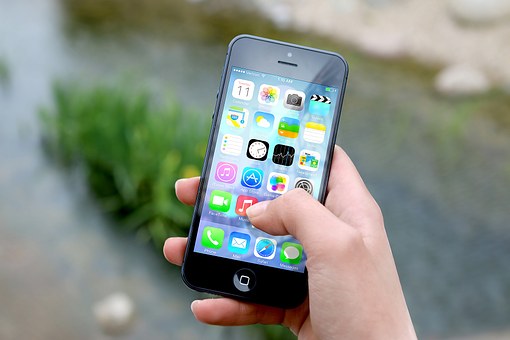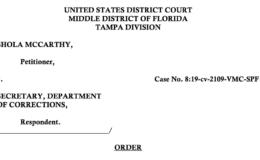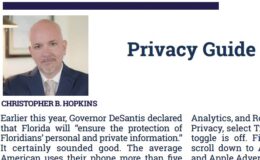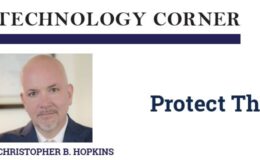Can A State Search Cellphone of Person on Probation Without Warrant or Probable Cause? (Florida v. Mark Leroy Phillips, Sr.)
- By : Cbh
- Category : 4th Amendment, iOS, law & order

Florida’s Fifth District Court of Appeal considered the question whether, under the Fourth Amendment, the State of Florida could search the cellphone of a man on probation for child abuse convictions (and who was a registered sex offender) when there was no warrant or reasonable suspicion.
The court, in Florida v. Mark Leroy Phillips, Sr., concluded that the search was reasonable for 4th Amendment purposes because the government’s interest in supervising the defendant on probation (particularly given the nature of the crimes) outweighed his individual right of privacy.
The defendant was convicted on attempted sexual battery on a child, lewd and lascivious conduct upon a child, and sexual activity with a child. He was sent to jail for 10 years, put on probation for 15 years, and was registered as a sex offender. The terms of his probation were broad but were written at a time when cellphones existed but were not internet-capable. To wit, the order held that the State “retains custody over [the defendant’s] body” and was authorized to search vehicles and premises. However, the broad probation terms did not mention the State’s ability to search his phone. At some point after being released from prison, a probation officer visited the defendant’s home and imaged the defendant’s cell phones (it is not discussed in the opinion, but it appears the defendant had more than one phone).
The court approached the Fourth Amendment search issue as a balancing test between the right of the defendant to be secure in his person, house, and papers (degree of intrusion) against the government’s interest. The twist here is that a probationer has LOW expectations of privacy but everyone has an unusually HIGH expectation of privacy in their cellphones.
Specifically, the Court relied upon a 1979 Florida Supreme Court case which held that a warrantless search of a probationer’s person and residence, for use in the probationary proceedings, was reasonable even if there is no express search condition in the order of probation.
However, the U.S. Supreme Court recognized in Riley that “a cell phone search would typically expose to the government far more than the most exhaustive search of a house…” So the privacy rights applied to a cell phone (outside of a probationary scenario) was held to be quite high.
In the end, the 5th District held that the totality of the circumstances was that the defendant-probationer was exposed to a thorough search of person and property and, “although a cell phone likely carries with it greater privacy interest than even one’s residence, it does not tip the scales much in [the defendant’s] favor.” The Court further stressed that “searching a probationer’s cell phone data [in child abuse-related matters] is critical in this digital age… [w]here a child predator once searched for victims in person, the internet offers a much more effective, efficient, and dangerous tool for identifying minor victims.”
Taken as a whole, this is not a surprising outcome; to determine otherwise might lead all pre-probation orders which were written in a pre-smartphone era to be “missing” this key source of information, at least as it relates to the types of crimes at issue in this case.
Have a question about cell phone privacy rights relative to law enforcement, employment, schools, and parental rights? Be sure to consult a qualified lawyer in your jurisdiction who has experience with constitutional, statutory, and technology issues.
Image credit: Pixabay


